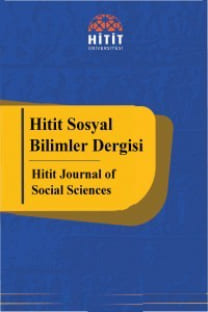HOW AND WHY WE NEED TO TEACH STANDARDERROR: TEACHING STANDARD ERROR AS A PRIMER ON THE SAMPLING DISTRIBUTION WITH A NEW MOBILE APPLICATION
___
- REFERENCES
- BAKAN, D. (1966). The test of significance in psychological research. Psychological Bulletin, 66, 423-37.
- CARVER, R. (1978). The case against statistical significance testing. Harvard Educational Review, 48, 378-399.
- COHEN. J. (1965). Some statistical issues in psychological research. In B. B. Wolman (Ed.). Handbook of clinical psychology (pp. 95-121). New York: McGraw-Hill.
- CORTINA, J. M., & Landis, R. S. 2011. The Earth is not round (p = .00). Organizational Research Methods, 14, 332-349.
- DUHACKEK, A., & IACOBUCCI, D. (2004). Alpha's standard error (ASE): An accurate and precise confidence interval estimate. Journal of Applied Psychology, 89, 792-808.
- FIELD A. (2009). Discovering statistics using SPSS. London: Sage.
- FISHER, R. A. (1935). The design of experiments. New York: Hafner.
- JOSEPH, L., & REINHOLD, C. (2003). Introduction to probability theory and sampling distributions. American Journal of Roentgenology, 180, 917-923.
- KIRK, R.E. (1996). Practical significance: A concept whose time has come. Educational and Psychological Measurement, 56, 746-759.
- LOFTUS, G. R., & Loftus, E. F. (1982). Essence of statistics. Monterey, CA: Brooks/Cole.
- MEEHL, P.E. (1978). Theoretical risks and tabular asterisks: Sir Karl, Sir Ronald, and the slow progress of soft psychology. Journal of Consulting and Clinical Psychology, 46, 806-834.
- MORRISON, D. E., & Henkel, R. E. (Eds.). (1970). The significance test controversy: A reader. Chicago: Aldine.
- NICKERSON, R.S. (2000). Null hypothesis significance testing: A review of an old and continuing controversy. Psychological Methods, 5, 241-301.
- PACHLER, N., BACHMAIR, B. & COOK, J. (2009) Mobile learning: structures, agency, practices (pp. 3-26). Springer, New York.
- RESTORE. (2011, July 21). Using statistical regression methods in education research. Retrieved November 15, 2015, from http://www.restore.ac.uk/srme/www/fac/soc/wie/research new/srme/modules/mod1/9/index.html
- ROZEBOOM, W. W. (1997). Good science is abductive, not hypothetico-deductive. In L. L. Harlow, S. A. Mulaik, & J. H. Steiger (Eds.), What if there were no significance tests? (pp. 335-391). Hillsdale, NJ: Erlbaum.
- THOMPSON, B. (1993). The use of statistical significance tests in research: Bootstrap and other alternatives. Journal of Experimental Education, 61, 361-377.
- THOMPSON, B. (1996). AERA editorial policies regarding statistical significance testing: Three suggested reforms. Educational Researcher, 25, 26-30.
- THOMPSON, B. (1999a). If statistical significance tests are broken/misused, what practices should supplement or replace them? Theory & Psychology, 9, 165-181. [Invited address presented at the 1997 annual meeting of the American Psychological Association, Chicago.]
- THOMPSON, B. (1999b). Journal editorial policies regarding statistical significance tests: Heat is to fire as p is to importance. Educational Psychology Review, 11, 157-169.
- THOMPSON, B. (2008). Foundations of behavioral statistics: An insight-based approach. New York: Guilford.
- TUKEY, J. W. (1991). The philosophy of multiple comparisons. Statistical Science, 6, 100-116. Retrieved Februay 12, 2016, from http://www.restore.ac.uk/srme/www/fac/soc/wie/research new/srme/modules/mod1/9/index.html.
- Yayın Aralığı: Yılda 2 Sayı
- Başlangıç: 2008
- Yayıncı: Hitit Üniversitesi
“KUTSAL İTTİFAK”A KARŞI “KUTSAL ÇAĞRI”: OSMANLI’DA CİHAD VE NEFÎR ÂMM İLANI (1686)
Özlem YAŞAR UĞURLU, Sibel AYAS, İşıl ÖNAY
İlkay GÖKTAŞ, Hülya GÜLAY OGELMAN
İÇGÖÇ ALGISININ DEĞİŞMESİ VE GURBETÇİLİK ÜZERİNE
AVRUPA'NIN GENETİĞİ: DOĞUŞU VE GELECEĞİ
ÖĞRETMENLERİN MESLEKİ TUTUMLARI İLE YAŞAM BOYU ÖĞRENME EĞİLİMLERİ ARASINDAKİ İLİŞKİ
